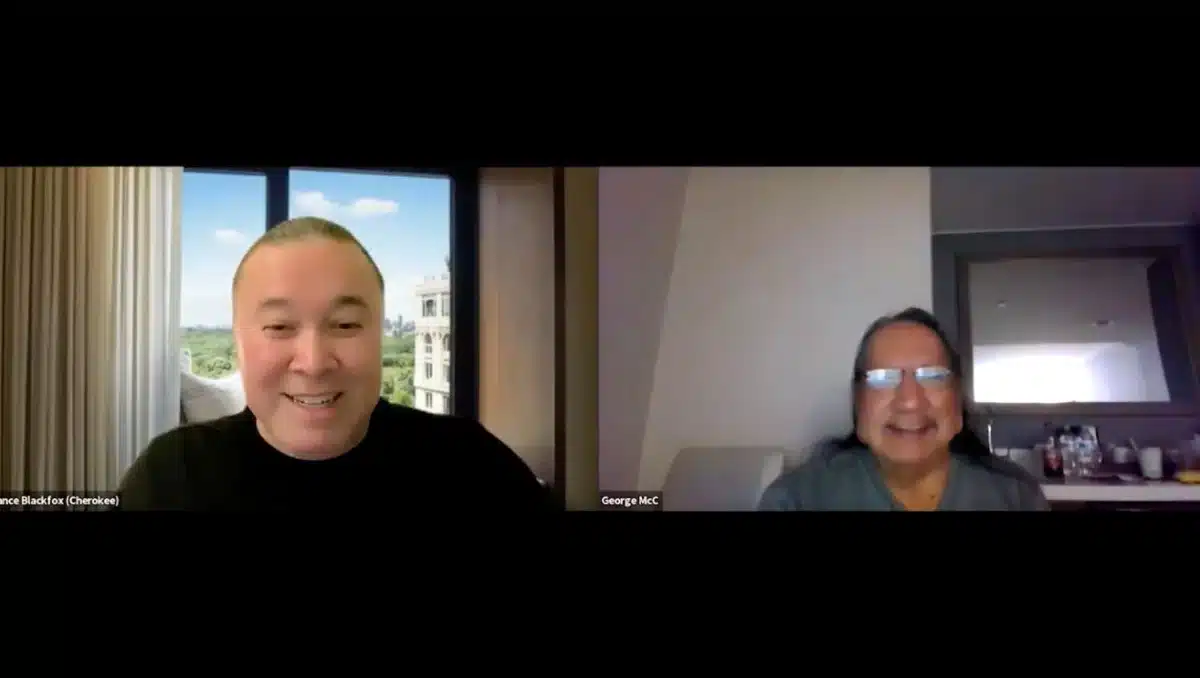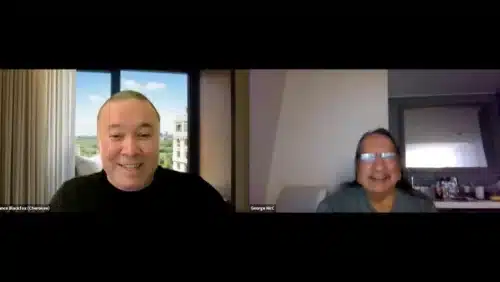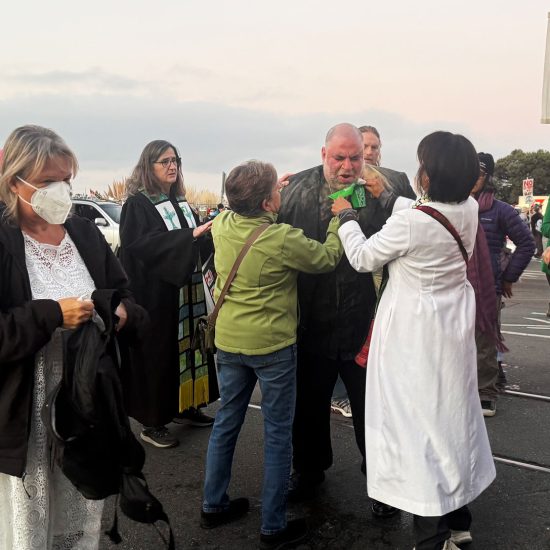
(RNS) — George McCauley can still hear the school secretary’s voice calling his name over the loudspeaker on the wall of his 11th grade English classroom.
He can still remember walking back to his dorm at the Flandreau Indian School in South Dakota, wondering what he had done wrong, and the school official who met him there, telling him instead that his mother had died.
More than 50 years later, he can still feel the numbness of that moment, far away from his family. Only recently, he said, has he realized how his experience at boarding school created abandonment issues that impacted his life long after he graduated in 1971.
McCauley, a citizen of the Omaha Nation in northeastern Nebraska, shared his experience as a boarding school survivor on Sept. 13 in the first of a monthlong series of online classes and presentations hosted by the Evangelical Lutheran Church in America’s Truth and Healing Movement, focused on the federal Indian boarding school system that separated generations of Indigenous children from their families and cultures.

George McCauley, right, is a member of the Omaha Nation in Nebraska and an Indigenous boarding school survivor. McCauley attended the Flandreau Indian School in South Dakota as a boy and spoke as a part of the Evangelical Lutheran Church in America’s Truth and Healing Movement ahead of the National Day of Remembrance. Vance Blackfox, left, the ELCA’s director for Indigenous ministries and tribal relations, moderated the online conversation with McCauley. Video screen grabs
“I think we need to recognize the trauma that is still here and with the ones that have been to boarding school — the trauma that is felt by all relatives across Turtle Island,” or North America, McCauley said.
September has become a month for acknowledging harms committed against Indigenous people in the U.S., culminating with the National Day of Remembrance for Indian Boarding Schools on Sept. 30. It echoes Canada’s National Day for Truth and Reconciliation and the Indigenous-led Orange Shirt Day, observed on the same day.
The denomination’s commitment comes not only as a result of the investigative report released last year by the U.S. Department of the Interior that found half of U.S. boarding schools likely were supported by religious institutions, but also out of the Declaration of the ELCA to American Indian and Alaska Native People and its repudiation of the Doctrine of Discovery.
In April, ELCA Presiding Bishop Elizabeth Eaton announced that the country’s largest Lutheran denomination was launching its own Truth and Healing Movement, centering from Easter through Advent on the efforts Indigenous peoples across the country have led to heal the wounds left by the boarding schools and understand the impacts of colonization.
“We must be in better, right, and healthy relationships with the Indigenous people of Turtle Island. As we know, the truth and our knowing and embracing it, is the first step toward healing for all of us,” Eaton said at the time.
Online events this month by the ELCA include a conversation with descendants of boarding school survivors that took place Monday night (Sept. 18), followed by presentations about the denomination’s Truth and Healing Movement and Truth Seeking and Truth Telling Initiative, its effort to research Lutheran involvement in boarding schools, as well as an “Indian 101” class.
The ELCA also has published a guide for leading a prayer service to remember the Indigenous children who attended boarding schools, written and compiled by Oglala Lakota theologian Kelly Sherman-Conroy.
Additional events have been scheduled by the ELCA’s Truth and Healing Movement through the end of November.
“I think it’s important for members of the ELCA to know more about boarding schools generally in hopes that they might then be convicted to teach other people about Indian boarding schools — maybe their congregations,” said Vance Blackfox, the ELCA’s director for Indigenous ministries and tribal relations.
“Hearing a story from a survivor makes the story for us even more human and real and important.”
About 60 people attended the online conversation with McCauley, which Blackfox moderated.
McCauley told participants that his experience attending high school at Flandreau was “not bad” compared with many Indigenous people’s experiences of abuse at boarding schools. Every survivor he’s talked to has had a different experience.
But “not bad” still meant marching every day during gym class and making his bed every morning with military precision. The federal boarding school system, after all, was modeled after the Carlisle Indian Industrial School in Pennsylvania, which was founded in 1879 by Lt. Richard Henry Pratt with the motto “Kill the Indian, save the man,” McCauley said.
It still meant cutting his hair, which traditionally is worn long. He hasn’t cut his hair since he graduated, he said.
It meant separation from his family and culture, and what McCauley called “educational neglect.”
“I don’t know why they had us go to school because they weren’t there to try to get us into college. They weren’t trying to get us to be educated,” he said.
Churches can do more to find records of boarding schools and the remains of Indigenous children who may be buried on their grounds, McCauley said. He urged those who attended last week’s webinar to educate their congregations about the boarding school system.
“I think it’s a very important thing that we talk about it so the healing can begin of what happened, and the way to begin with that is hearing the truth. The truth can’t be changed, the truth can’t be denied, and it can’t be ignored,” he said.
“So I’m thankful and grateful that you’re all here to listen, and I know that good things can come from this.”







